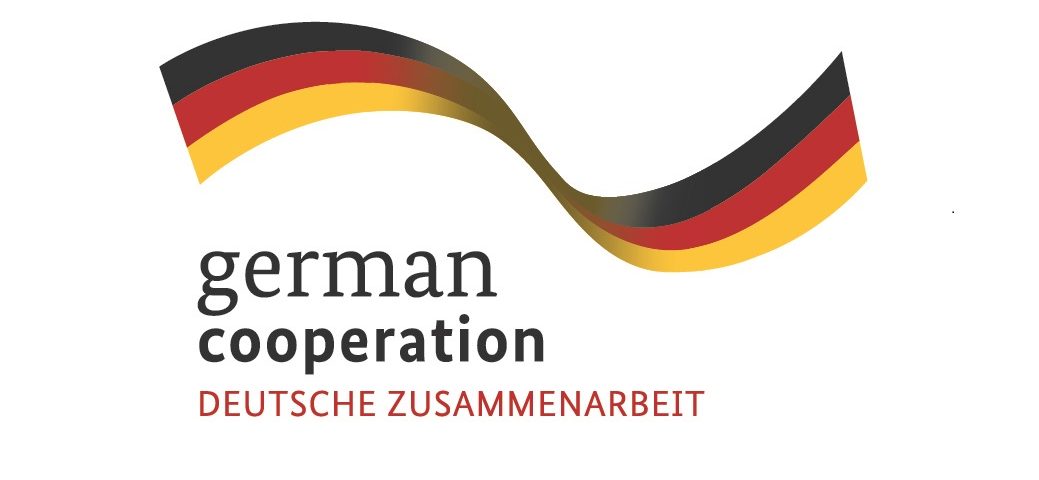NIGERIA TOBACCO CONTROL DATA COLLECTION INITIATIVE
REQUEST FOR PROPOSALS
CLOSING DATE: 13 AUG 2021
INTRODUCTION
PROJECT OVERVIEW
The Tobacco Control Data Initiative (TCDI), implemented by Development Gateway in partnership with the University of Cape Town and funded by a grant from the Bill & Melinda Gates Foundation, is a project that aims to supply Sub-Saharan African (SSA) governments with improved access to country-specific data that will inform better tobacco control policy design and implementation. This project aims to design and develop national online websites that contain data and research related to tobacco control. This information is showcased to meet the needs of government stakeholders, as well as civil society and academia. The dashboard will be informed by data from primary sources (either primary data collected during our project or existing secondary data made publicly available) as well as secondary sources (such as papers published in peer-reviewed journals). The purpose of this RFP is to identify a data collection firm to collect primary quantitative and qualitative data on factors (social, cultural, behavioral, etc.) contributing to the use of shisha in Nigeria.
COMPANY BACKGROUND
Development Gateway (DG) is an international nonprofit organization that creates innovative information management and data visualization technology, implements data-focused programs, and conducts research and evaluation to further sustainable development. DG supports public and private sector actors in collecting, analyzing and using data in the health sector for policymakers and development agencies to make more effective decisions and to improve service delivery. Our partners in this work include The Bill and Melinda Gates Foundation, UNICEF, USAID, and MCC. DG is headquartered in Washington, DC, and is exempt under Section 501(c)(3) of the Internal Revenue Code. A more complete overview of DG can be viewed at http://www.developmentgateway.org.
For the TCDI project, Development Gateway is partnering with the University of Cape Town’s Research Unit on the Economics of Excisable Products (REEP), an accredited research unit with the School of Economics. REEP focuses on supporting public health through rigorous research in tobacco, alcohol and sweetened beverages.
SCOPE OF WORK
The objective of this consultancy is to conduct both qualitative and quantitative data collection on a number of indicators related to the use of shisha, hookah, and water pipe tobacco products (collectively referred to as “shisha” in the language of this proposal) in Nigeria. The qualitative data will be collected first and used to inform the content of the quantitative survey questionnaire. The proposed budget for this project should not exceed USD $240,000 (see more details on budget in Proposal Submission Instructions).
In this section, we discuss the anticipated work to be included in this consultancy. Please note that this section discusses expectations around the work itself – and not information requested for the proposal.
RESEARCH QUESTIONS
Both the quantitative and qualitative data collected in this study will aim to answer the following questions:
- Primary research question: “What factors (social, cultural, behavioral, etc.) are contributing to the use of shisha in Nigeria?”. This will include an analysis of the demographics of shisha users in our survey, including age, gender, ethnicity, religion, geographic area, education level, employment, etc.
- Other questions or variables of interest:
- Are participants aware of the negative health impacts of shisha use? What are the prevailing misconceptions regarding health and shisha use?
- What aspects entice people to either start or continue smoking shisha (flavors, peer pressure, perception that shisha is less harmful, etc.)?
- Does shisha use occur primarily in the home or in public settings?
- Does shisha use occur primarily in individual or social settings?
- Did initiation occur in social settings? Was peer pressure a significant factor in initiation?
- Are there other external factors influencing initiation and use (advertisements, movies, social media, etc.)?
- To what extent are health warnings clear and understood by shisha users?
- To what extent are retailers enforcing local laws and regulations on shisha use?
- To what extent are shisha users engaging in other risky behaviors?
RESEARCH APPROACH
In order to derive the most policy-relevant and actionable data from this study, we propose a two-phase mixed methods approach to data collection. The aim of this two-phased approach will be to generate appropriately powered and nationally representative survey data based on a set of questions that are customized for the specific context of shisha use in Nigeria.
- Phase 1 will involve semi-structured qualitative interviews with known shisha smokers on factors related to initiation and continuation of shisha use, social and cultural influences, and knowledge of harmful health effects.
- Phase 2 will involve a survey with a larger sample size , with survey questions crafted and informed by the content and analysis of the qualitative interviews.
The selected firm is expected to work closely with the TCDI team to develop the content of the interviews, and especially the survey questionnaire and sampling methodology. At the end of the research in Phase 1, the selected firm will present findings from the semi-structured qualitative interviews to the TCDI team for review. The firm will then work with the TCDI team to identify specific areas of interest — and question design — for the survey questionnaire that are directly informed by the findings of these interviews and will be used in Phase 2 research.
Requirements/characteristics of the Sample for the Data Collection Process
The TCDI team has calculated an estimated sample size for consideration by the firms applying for this consultancy. However, larger sample sizes and modified methodologies are encouraged inasmuch as they help to answer the research questions identified above. Firms should include a detailed sampling and recruitment strategy outlining how they plan to identify, recruit, and/or incentivize known shisha users for the interviews and survey.
The sample of participants for the qualitative interviews should include 30-50 respondents from various age groups, socioeconomic status, and geographic areas (including urban and rural). In-person qualitative interviews are strongly preferred, so long as they do not impact the geographic scope of the sample or violate local COVID-19 ordinances. Where in-person interviews are not possible, firms that propose conducting interviews via phone call or video chat will also be accepted. Proposals should outline interviewing procedures via the following methods: live call centers, SMS/WhatsApp/mobile phone data collection, online surveys, and/or in-person interviews.
The estimated prevalence of shisha product in Nigeria ranges from 7% among adults[1] to 20% among university students.[2], [3] Therefore, the sample of shisha users for the Phase 2 survey should consist of 1100-1200 respondents (who complete the full survey) at minimum to ensure sufficient statistical power to answer the research questions.
Other sampling considerations:
- Respondents must be at least 18 years old.
- Sample should be nationally representative of the population of Nigeria, while also accounting for differences in rural vs urban populations, young adults vs older adults, socioeconomic status, etc.
- In line with other countries, we assume that shisha users are generally younger, urban, with higher socio-economic status. Therefore it may be necessary to stratify to achieve higher proportions of younger, urban and higher-socio-economic status individuals in the sample to ensure we obtain the range of 1100-1200 survey respondents and 50 interview participants (larger sample sizes will be given priority in proposal evaluation). The selected firm will be expected to weigh the data appropriately to accommodate for these population differences.
- A range of age ranges, allowing for stratification in the sample, will also be required.
Upon a firm being selected for data collection, the firm must prepare, in collaboration with the TCDI team, a study protocol detailing the sampling and stratification strategy for both the Phase 1 qualitative interviews and the Phase 2 survey, surveyor recruitment and training plans, details on the uploading and testing of the questionnaire on relevant survey software, procedures on pilot and full data collection, data management, data privacy and security, data cleaning and the calculation of data weights. The protocol should also include a work plan and schedule, appropriate sampling techniques, and expected sample size. The protocol will be finalized and validated in consultation with DG. Both the survey instrument(s) and qualitative interview guides must be field tested during the pilot and may require some revisions as needed.
TIMELINE
PROPOSAL TIMELINE
- Submission of completed proposal due by 11:59 PM (Eastern Standard Time, GMT – 5) on Friday, August 13 2021
- Review of proposals will take place August 16th – August 20th, 2021. Firms may be contacted for follow-on questions as necessary during this week.
You need to be logged in to view the rest of the content. Please
Log In. Not a Member?
Join Us













